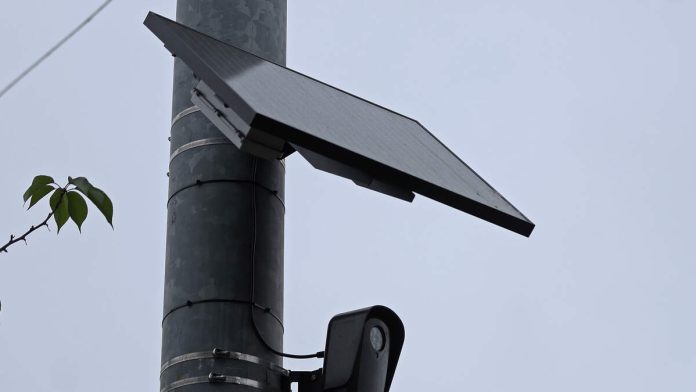Residents of Cheviot Hills, a wealthy neighborhood in West Los Angeles, donated over $200,000 worth of high-tech license plate readers to the Los Angeles Police Department (LAPD) in response to a rise in burglaries last year. These cameras, known as automated plate readers, help track vehicles of interest and assist in crime investigations. However, the donation has sparked debates about privacy and the use of technology in policing.
The neighborhood association stipulated that the cameras be used exclusively in Cheviot Hills, a condition that has led to discussions about the control and deployment of donated technology. Critics have raised concerns over privacy, as the cameras collect data on motorists without their consent, storing information for up to five years.
According to the Los Angeles Times, LAPD Deputy Chief John McMahon criticized the limitations on the cameras’ use and the selection of Flock Safety, an Atlanta-based company, as the vendor. McMahon argued that police departments should have full control over the data collected and expressed concerns about compatibility with existing LAPD systems.
The donation has drawn attention from the LAPD’s civilian oversight panel, which is concerned about setting a precedent where only affluent areas benefit from advanced crime-fighting technology. The Police Commission and City Council have approved the donation, but oversight officials are seeking more information on the department’s strategy for deploying plate readers citywide.
The Cheviot Hills neighborhood association initially planned to use Motorola Vigilant cameras but switched to Flock Safety for better alignment with their long-term safety goals. The cameras are strategically placed around the neighborhood’s perimeter, with input from law enforcement experts.
The controversy highlights ongoing debates about privacy, technology, and law enforcement in Los Angeles, as well as the role of private donations in public safety initiatives.

Recent Comments